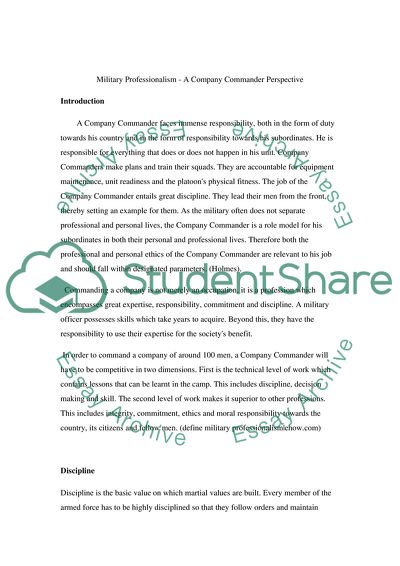Cite this document
(Military Professionalism - A Company Commander Perspective Term Paper, n.d.)
Military Professionalism - A Company Commander Perspective Term Paper. Retrieved from https://studentshare.org/military/1742543-military-professionalism-a-company-commander-perspective
Military Professionalism - A Company Commander Perspective Term Paper. Retrieved from https://studentshare.org/military/1742543-military-professionalism-a-company-commander-perspective
(Military Professionalism - A Company Commander Perspective Term Paper)
Military Professionalism - A Company Commander Perspective Term Paper. https://studentshare.org/military/1742543-military-professionalism-a-company-commander-perspective.
Military Professionalism - A Company Commander Perspective Term Paper. https://studentshare.org/military/1742543-military-professionalism-a-company-commander-perspective.
“Military Professionalism - A Company Commander Perspective Term Paper”, n.d. https://studentshare.org/military/1742543-military-professionalism-a-company-commander-perspective.


